Education 1 Education Literacy : in 2007, some



























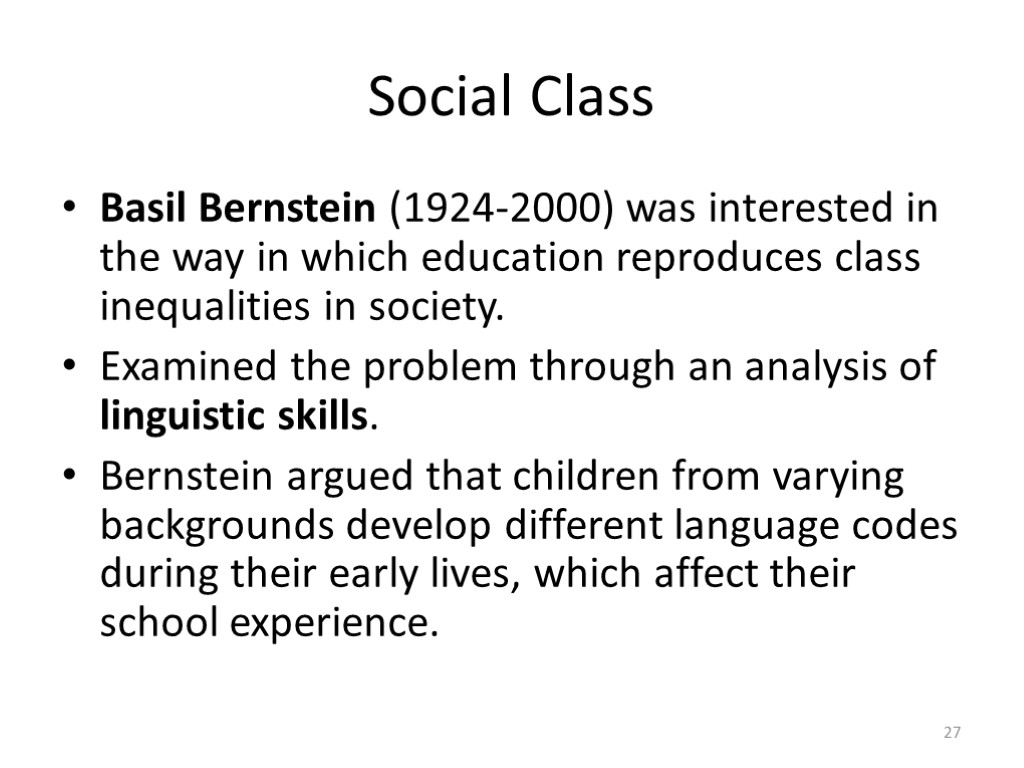
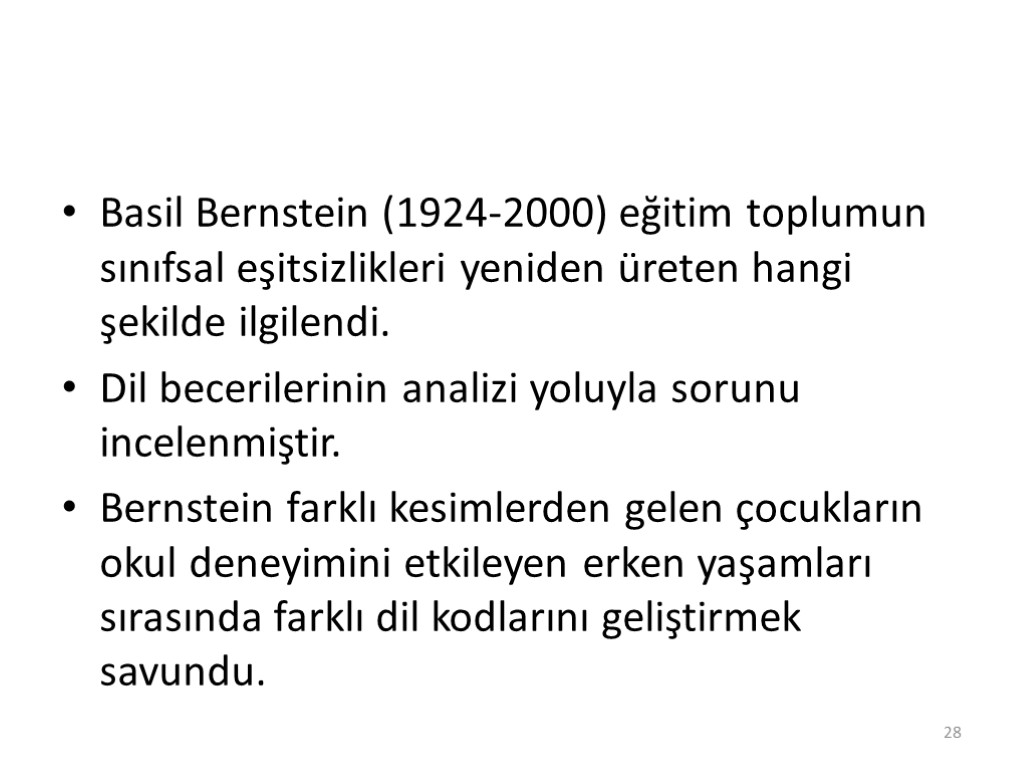
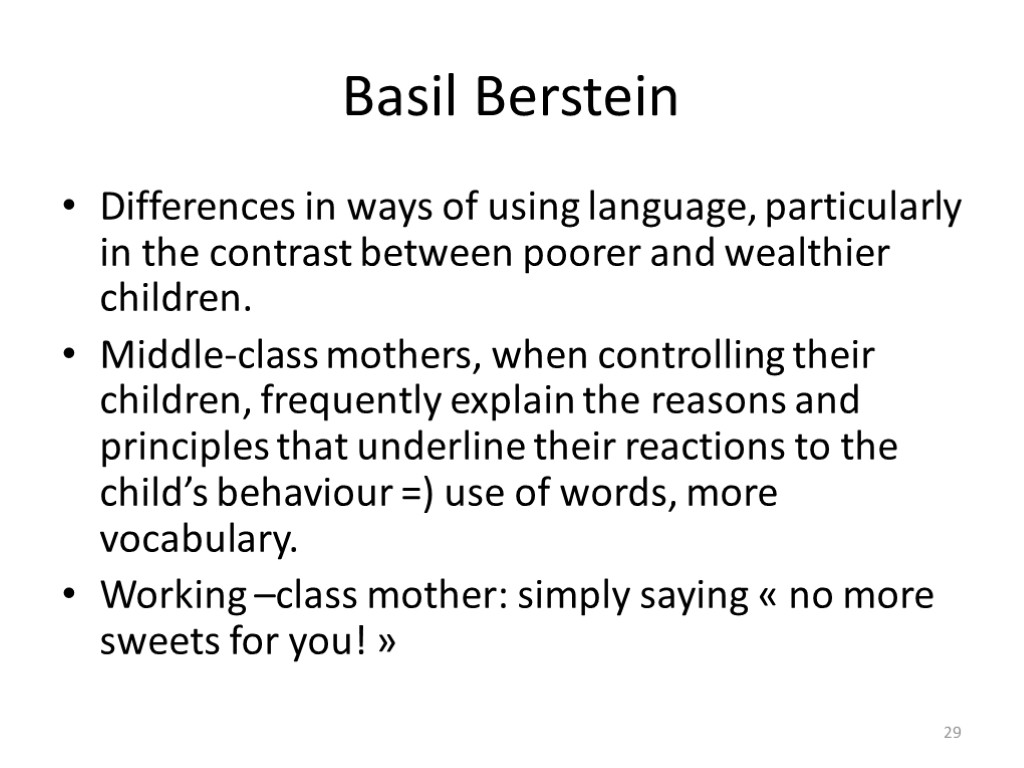
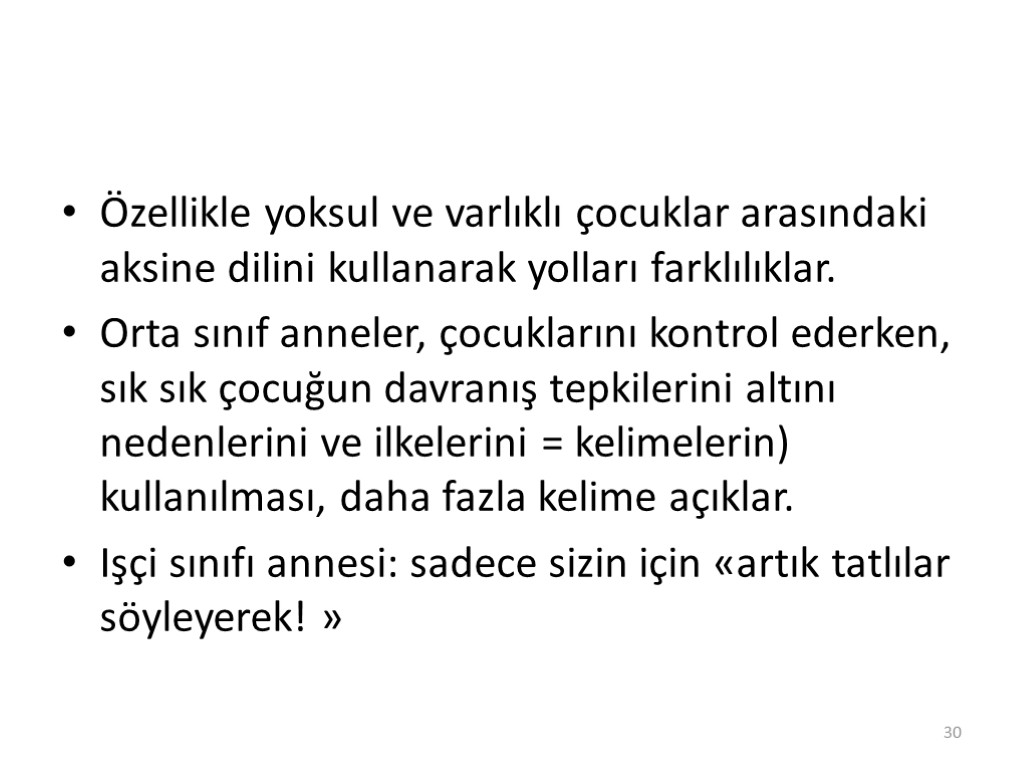
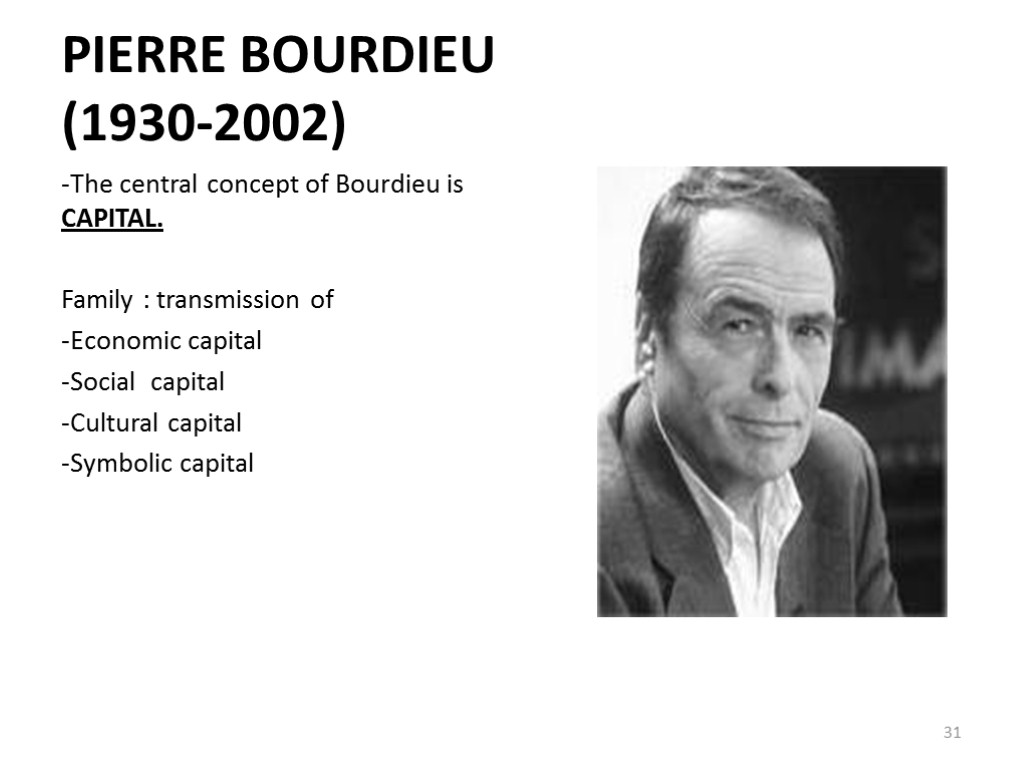
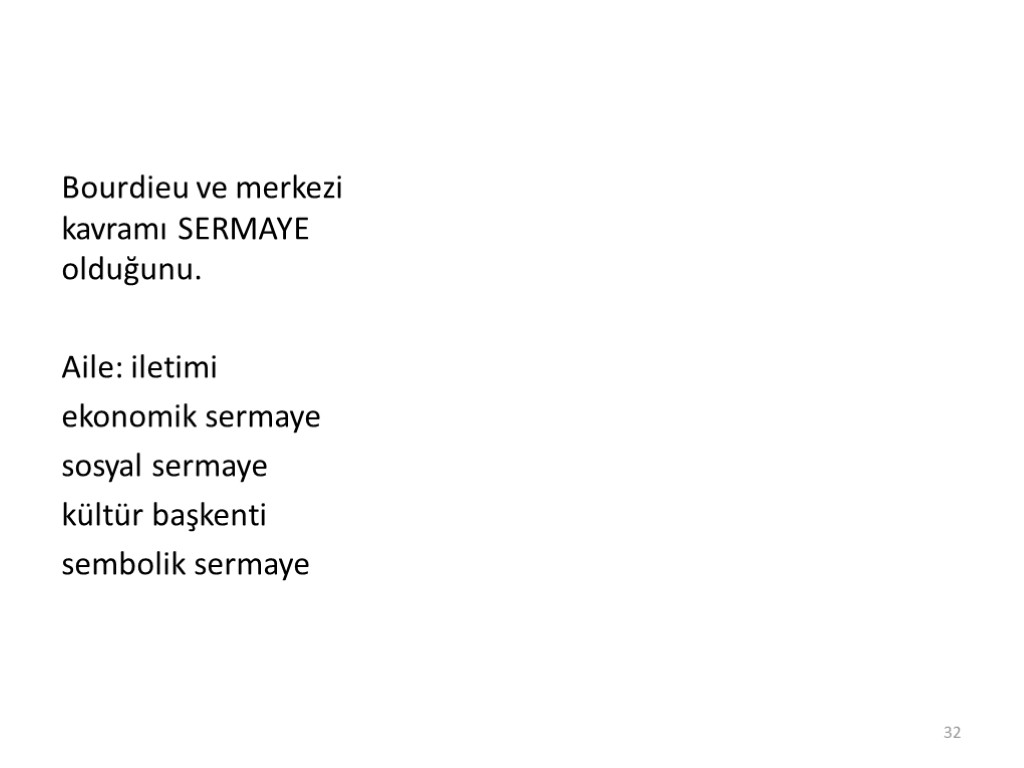
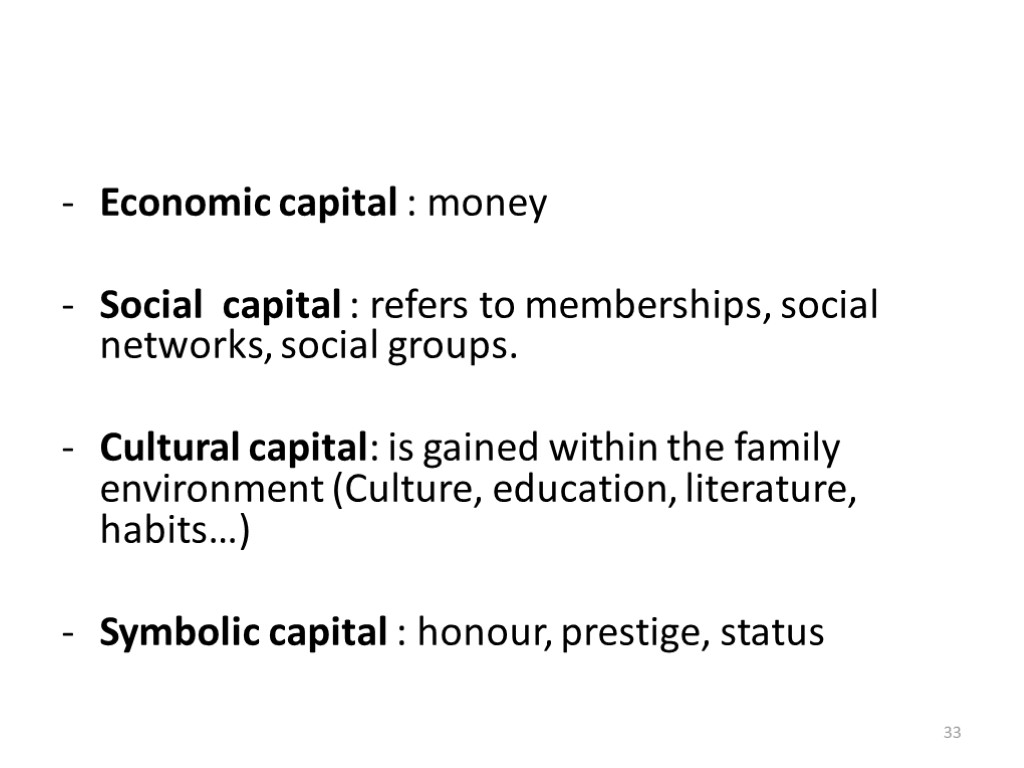
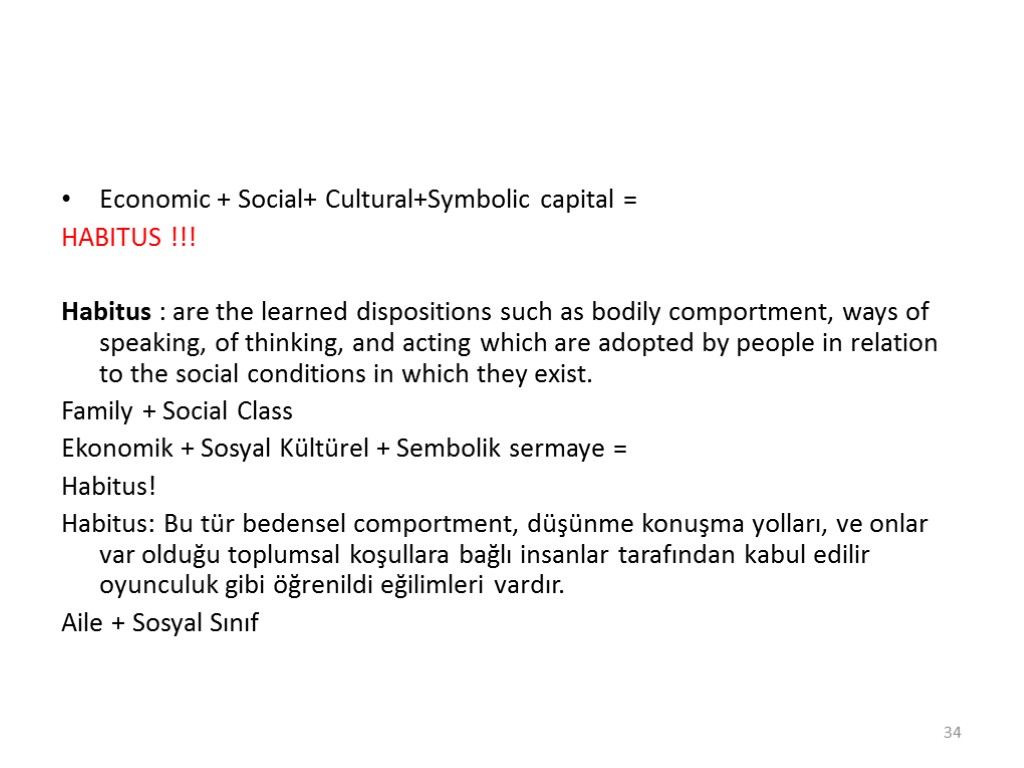
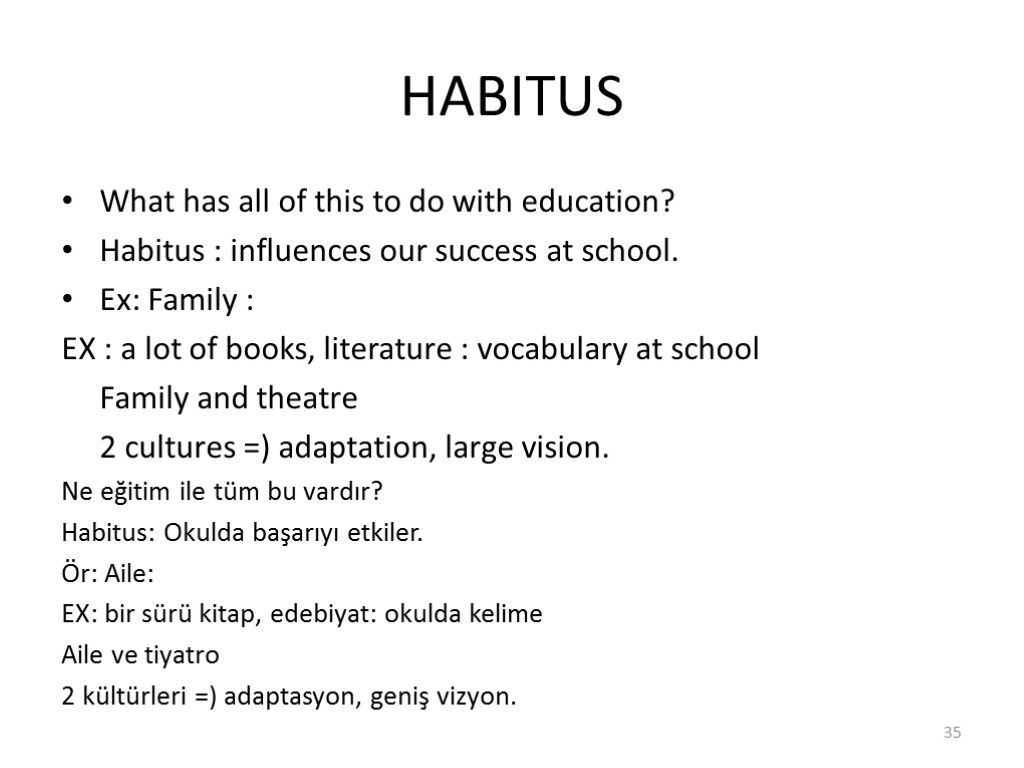

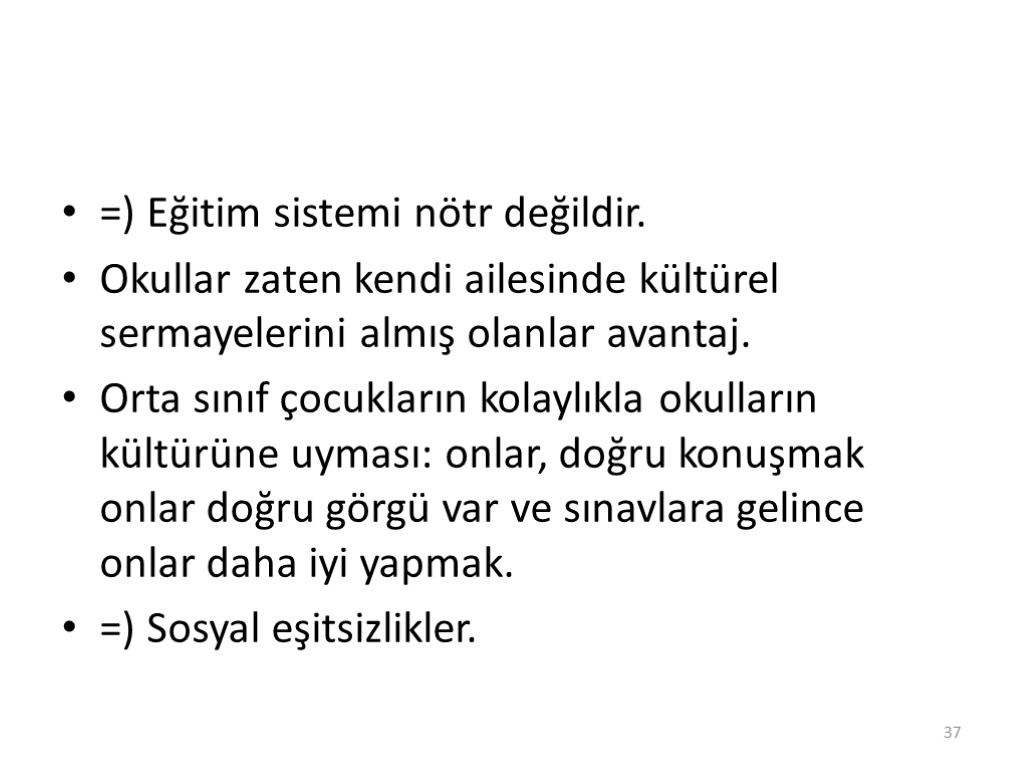
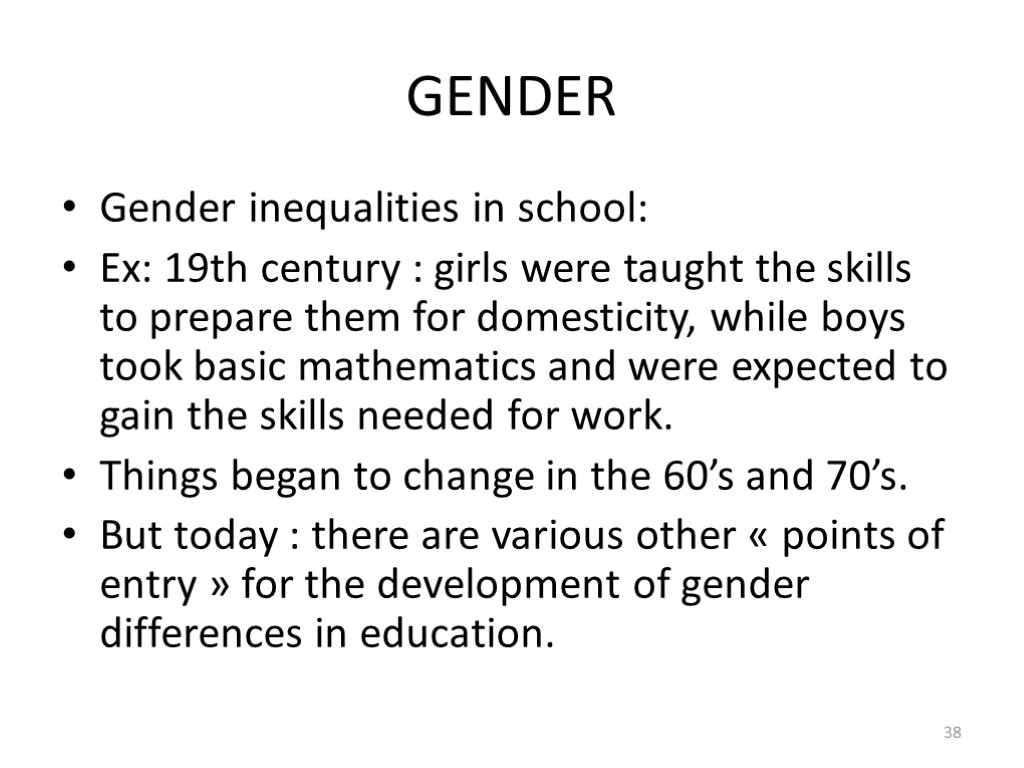
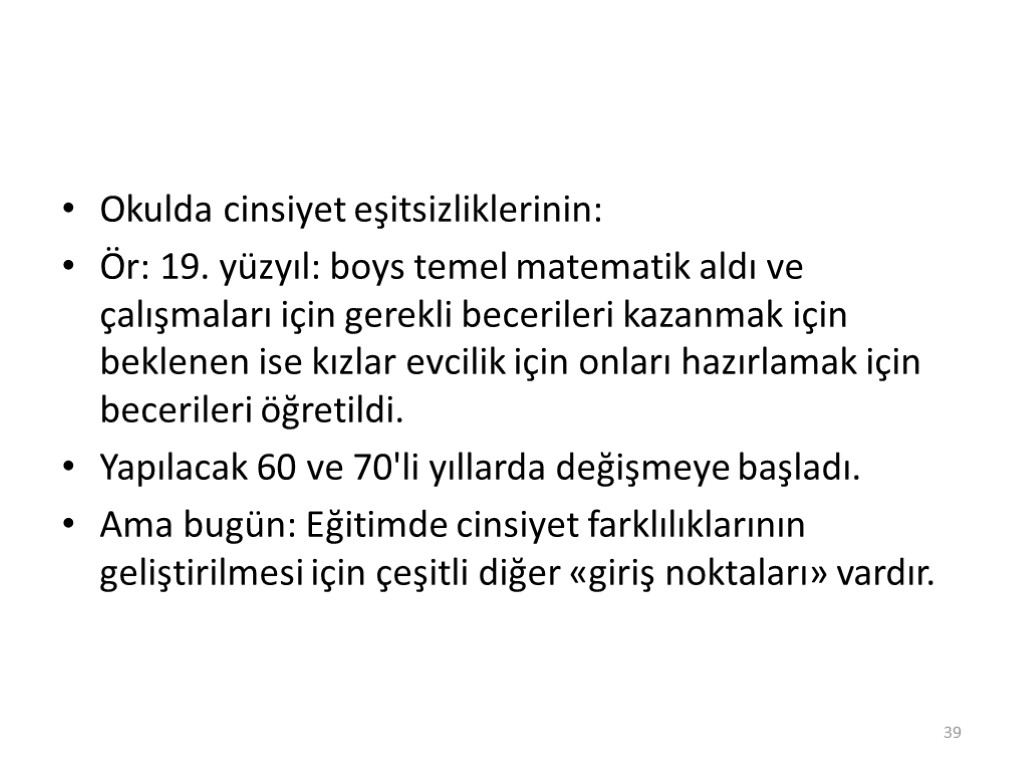
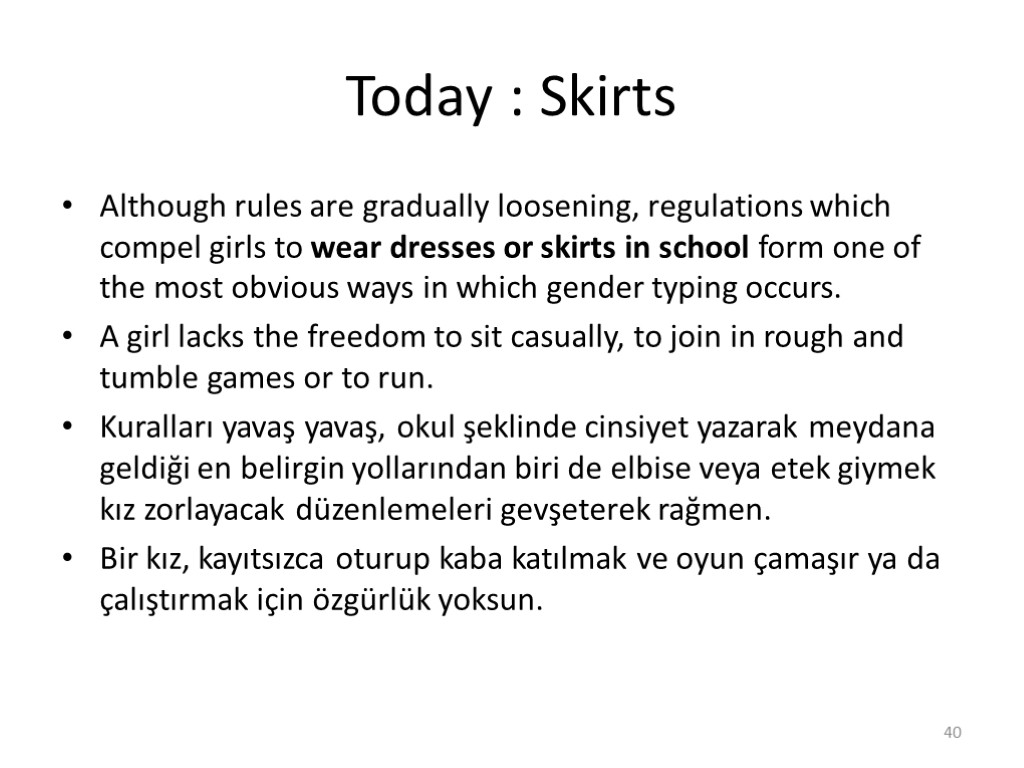
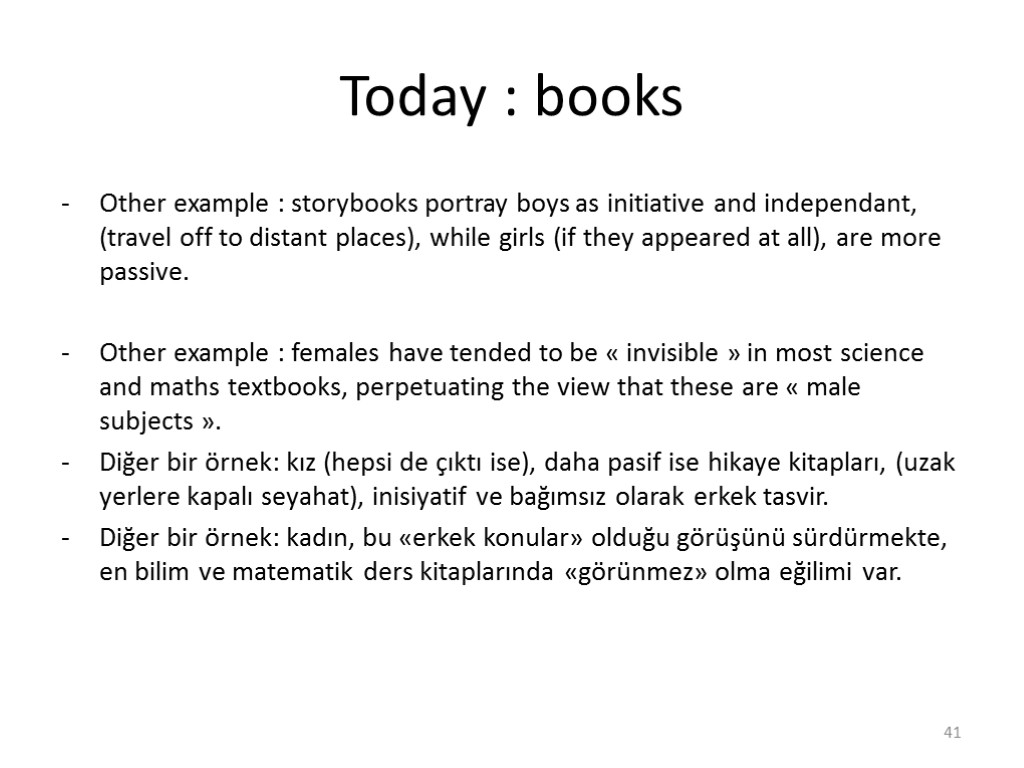
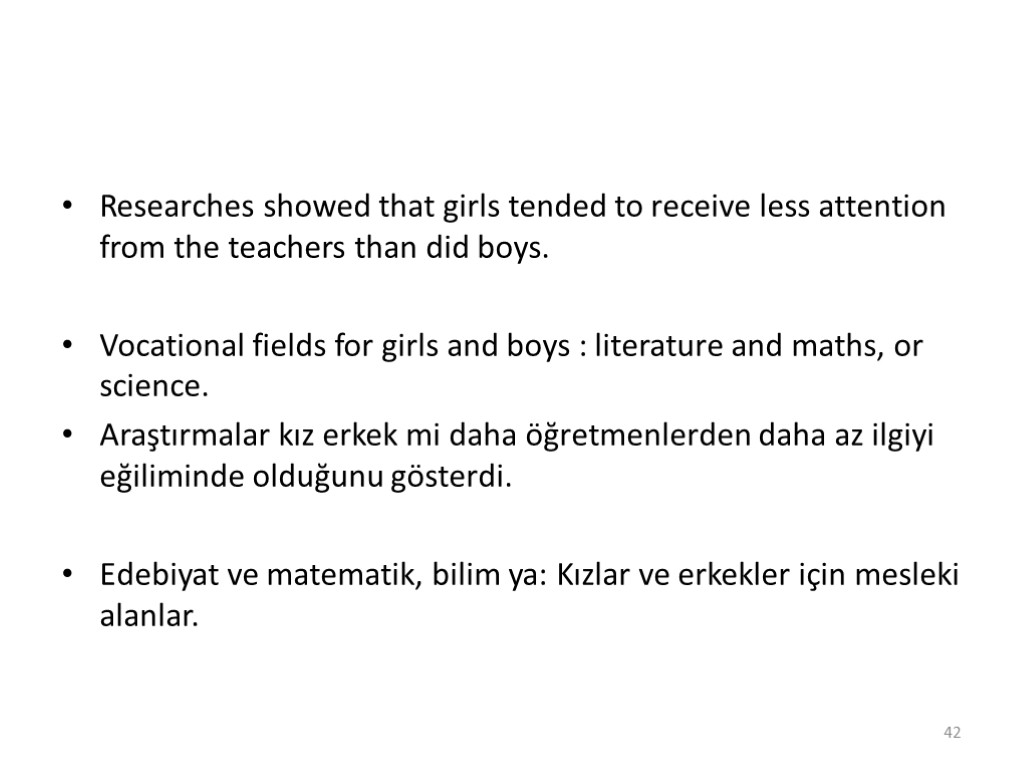
education.ppt
- Количество слайдов: 42
 Education 1
Education 1
 Education Literacy : in 2007, some 781 million adults across the world did not have basic literacy skills and 64 per cent of these were women. (UNESCO 2008) The majority live in Sub Saharian Africa, South and West Asia and East Asia. Okuryazarlık: 2007 yılında, dünya genelinde bazı 781 milyon yetişkin okuma-yazma temel becerileri yoktu ve bu 64 yüzde kadındı. (2008 UNESCO) Çoğunluğu Sahra Altı Afrika, Güney ve Batı Asya ve Doğu Asya'da yaşıyor 2
Education Literacy : in 2007, some 781 million adults across the world did not have basic literacy skills and 64 per cent of these were women. (UNESCO 2008) The majority live in Sub Saharian Africa, South and West Asia and East Asia. Okuryazarlık: 2007 yılında, dünya genelinde bazı 781 milyon yetişkin okuma-yazma temel becerileri yoktu ve bu 64 yüzde kadındı. (2008 UNESCO) Çoğunluğu Sahra Altı Afrika, Güney ve Batı Asya ve Doğu Asya'da yaşıyor 2
 Education Literacy : The ability to read and write. (the opposite : Illiteracy) Illiteracy exists in every society including those in the developed world. Okuryazarlık: okuma ve yazma yeteneği. (tersi: Cehalet) Eğitimsizlik gelişmiş dünyada da dahil olmak üzere her toplumda var. 3
Education Literacy : The ability to read and write. (the opposite : Illiteracy) Illiteracy exists in every society including those in the developed world. Okuryazarlık: okuma ve yazma yeteneği. (tersi: Cehalet) Eğitimsizlik gelişmiş dünyada da dahil olmak üzere her toplumda var. 3
 Education Education : seen as important in socialization processes for the transmission of society’s values and moral rules. What is education for? Is education simply the same thing as formal schooling? How is it linked to the class, the gender, the ethnicity? 4
Education Education : seen as important in socialization processes for the transmission of society’s values and moral rules. What is education for? Is education simply the same thing as formal schooling? How is it linked to the class, the gender, the ethnicity? 4
 Eğitim: toplumun değerleri ve ahlaki kuralların iletimi için sosyalleşme süreçlerinde önemli olarak görülüyor. Için eğitim nedir? Eğitim, örgün eğitim olarak sadece aynı şey midir? Nasıl sınıf, cinsiyet, etnik köken ile bağlantılıdır? 5
Eğitim: toplumun değerleri ve ahlaki kuralların iletimi için sosyalleşme süreçlerinde önemli olarak görülüyor. Için eğitim nedir? Eğitim, örgün eğitim olarak sadece aynı şey midir? Nasıl sınıf, cinsiyet, etnik köken ile bağlantılıdır? 5
 Theorizing the significance of education Education / Schooling !!! Education is the social institution which enables and promotes the acquisition of skills, knowledge. Education can take place in many social settings. (School, family, media…) Schooling : refers to the formal process through which certain types of knowledge and skills are delivered. Schooling in most countries is typically divided into stages such as those in primary and secondary schools. 6
Theorizing the significance of education Education / Schooling !!! Education is the social institution which enables and promotes the acquisition of skills, knowledge. Education can take place in many social settings. (School, family, media…) Schooling : refers to the formal process through which certain types of knowledge and skills are delivered. Schooling in most countries is typically divided into stages such as those in primary and secondary schools. 6
 Eğitim / Okullaşma! Eğitim becerilerin edinilmesini sağlayan ve teşvik sosyal kurumdur, bilgidir. Eğitim birçok sosyal ortamlarda yer alabilir. (Okul, aile, medya ...) Okullaşma: bilgi ve becerileri belirli türleri teslim edildiği resmi süreci ifade eder. Çoğu ülkede okullaşma genellikle, ilköğretim ve ortaöğretim okullarında gibi aşamalardan ayrılmıştır. 7
Eğitim / Okullaşma! Eğitim becerilerin edinilmesini sağlayan ve teşvik sosyal kurumdur, bilgidir. Eğitim birçok sosyal ortamlarda yer alabilir. (Okul, aile, medya ...) Okullaşma: bilgi ve becerileri belirli türleri teslim edildiği resmi süreci ifade eder. Çoğu ülkede okullaşma genellikle, ilköğretim ve ortaöğretim okullarında gibi aşamalardan ayrılmıştır. 7
 Education Some theorists see education as crucial for individuals to fulfil their potential but they also argue that education is not confined to or defined by that which is delivered in schools. Bazı kuramcılar bireylerin potansiyel yerine getirmek için çok önemli olarak eğitim görmek ama onlar da eğitim için sınırlı ya da okullarda teslim edildiği bu tarafından tanımlanan olmadığını savunuyorlar. Ex: In the university : being a social worker=) knowledge+skills; but also how to talk with teachers, meet other persons (different cultures, adaptation)… Ör: üniversite: Bir sosyal hizmet uzmanı =) bilgi + beceri olmak, ama aynı zamanda nasıl, öğretmenleri ile konuşmak başka kişileri (farklı kültürler, adaptasyon) karşılamak için ... 8
Education Some theorists see education as crucial for individuals to fulfil their potential but they also argue that education is not confined to or defined by that which is delivered in schools. Bazı kuramcılar bireylerin potansiyel yerine getirmek için çok önemli olarak eğitim görmek ama onlar da eğitim için sınırlı ya da okullarda teslim edildiği bu tarafından tanımlanan olmadığını savunuyorlar. Ex: In the university : being a social worker=) knowledge+skills; but also how to talk with teachers, meet other persons (different cultures, adaptation)… Ör: üniversite: Bir sosyal hizmet uzmanı =) bilgi + beceri olmak, ama aynı zamanda nasıl, öğretmenleri ile konuşmak başka kişileri (farklı kültürler, adaptasyon) karşılamak için ... 8
 Questions : what kind of education should be delivered and how? Should it cover history, politics, astrology, lessons on morality or religion? If school transmits values =) what about religion? What kinds of values should underpin education systems? =) these cultural issues are of enormous significance in multicultural societies, and have become contentious matters of political debate. 9
Questions : what kind of education should be delivered and how? Should it cover history, politics, astrology, lessons on morality or religion? If school transmits values =) what about religion? What kinds of values should underpin education systems? =) these cultural issues are of enormous significance in multicultural societies, and have become contentious matters of political debate. 9
 Sorular: ne tür eğitim nasıl teslim edilmelidir? Ahlak ya da din tarihi, siyaset, astroloji, dersleri kapsamalıdır? Okulun değerleri aktaran =) ne din? Değerlerin ne tür eğitim sistemlerini desteklemek gerekir? =) Bu kültürel konularda çok kültürlü toplumlarda büyük önem taşımaktadır ve siyasi tartışmaların çekişmeli konular haline gelmiştir. 10
Sorular: ne tür eğitim nasıl teslim edilmelidir? Ahlak ya da din tarihi, siyaset, astroloji, dersleri kapsamalıdır? Okulun değerleri aktaran =) ne din? Değerlerin ne tür eğitim sistemlerini desteklemek gerekir? =) Bu kültürel konularda çok kültürlü toplumlarda büyük önem taşımaktadır ve siyasi tartışmaların çekişmeli konular haline gelmiştir. 10
 Education Education is a complex political, economic, social and cultural issue. Eğitim, bir karmaşık siyasi, ekonomik, sosyal ve kültürel bir konudur 11
Education Education is a complex political, economic, social and cultural issue. Eğitim, bir karmaşık siyasi, ekonomik, sosyal ve kültürel bir konudur 11
 America centered 12
America centered 12
 Japan centered 13
Japan centered 13
 Education: questions - How should education be delivered and who should pay for it? - Should education systems be paid for by the state and delivered free to all? Or should we expect to pay directly for our own family’s education? Eğitimi nasıl teslim olmalı ve kim bunun için ödemek gerekir? - Meli eğitim sistemlerinin devlet tarafından ödenen ve tüm ücretsiz teslim edilecek? Ya da biz kendi aile eğitimi için doğrudan ödeme beklemeliyim? 14
Education: questions - How should education be delivered and who should pay for it? - Should education systems be paid for by the state and delivered free to all? Or should we expect to pay directly for our own family’s education? Eğitimi nasıl teslim olmalı ve kim bunun için ödemek gerekir? - Meli eğitim sistemlerinin devlet tarafından ödenen ve tüm ücretsiz teslim edilecek? Ya da biz kendi aile eğitimi için doğrudan ödeme beklemeliyim? 14
 Emile Durkeim He is a functionalist : everybody has a « function » in the society. Society as a system whose parts work together to promote stability. Impact of the society =) individuals. O bir işlevselci: herkes toplumda bir «işlevi» vardır. Parçalar istikrarı teşvik etmek için birlikte çalışmak, bir sistem olarak toplum. Toplumun Etkisi =) bireyler. 15
Emile Durkeim He is a functionalist : everybody has a « function » in the society. Society as a system whose parts work together to promote stability. Impact of the society =) individuals. O bir işlevselci: herkes toplumda bir «işlevi» vardır. Parçalar istikrarı teşvik etmek için birlikte çalışmak, bir sistem olarak toplum. Toplumun Etkisi =) bireyler. 15
 Emile Durkheim Education plays an important role in the socialization of children because children gain an understanding of the common values in society. (Ex: History) These common values include religious and moral beliefs and a sense of self-discipline. Schooling enables children to internalize the social rules that contribute to the functioning of society. 16
Emile Durkheim Education plays an important role in the socialization of children because children gain an understanding of the common values in society. (Ex: History) These common values include religious and moral beliefs and a sense of self-discipline. Schooling enables children to internalize the social rules that contribute to the functioning of society. 16
 Çocukların toplumda ortak değerlerin bir anlayış kazanmak için eğitim çocukların sosyalleşmesi önemli bir rol oynar. (Ör: Tarih) Bu ortak değerler, dini ve ahlaki inançlar ve öz disiplin duygusu bulunmaktadır. Okullaşma toplumun işleyişine katkıda toplumsal kurallara içselleştirmek çocukların sağlar. 17
Çocukların toplumda ortak değerlerin bir anlayış kazanmak için eğitim çocukların sosyalleşmesi önemli bir rol oynar. (Ör: Tarih) Bu ortak değerler, dini ve ahlaki inançlar ve öz disiplin duygusu bulunmaktadır. Okullaşma toplumun işleyişine katkıda toplumsal kurallara içselleştirmek çocukların sağlar. 17
 Emile Durkheim Durkheim was particularly concerned with upholding moral guidelines : In the 19th century : increasing individualism was developing that threatened social solidarity. (unity) For Durkheim: 2 kinds of solidarity Mechanical forms of solidarity: individualism is minimized, collectivism Organic forms of solidarity: extensive division of labor, industrial societies =) in the modern society : Mechanical =) organic ! 18
Emile Durkheim Durkheim was particularly concerned with upholding moral guidelines : In the 19th century : increasing individualism was developing that threatened social solidarity. (unity) For Durkheim: 2 kinds of solidarity Mechanical forms of solidarity: individualism is minimized, collectivism Organic forms of solidarity: extensive division of labor, industrial societies =) in the modern society : Mechanical =) organic ! 18
 Durkheim ahlak kurallarına destekleyerek özellikle endişe: 19. yüzyılda: artan bireycilik tehdidinde sosyal dayanışmayı geliştirerek edildi. (birlik) Durkheim için: dayanışmanın 2 çeşit Dayanışma mekanik biçimleri: bireycilik minimize edilir, kolektivizm Dayanışma organik formları: emek yoğun bölümü, sanayi toplumları =), Modern toplumda: Mekanik =) organik! 19
Durkheim ahlak kurallarına destekleyerek özellikle endişe: 19. yüzyılda: artan bireycilik tehdidinde sosyal dayanışmayı geliştirerek edildi. (birlik) Durkheim için: dayanışmanın 2 çeşit Dayanışma mekanik biçimleri: bireycilik minimize edilir, kolektivizm Dayanışma organik formları: emek yoğun bölümü, sanayi toplumları =), Modern toplumda: Mekanik =) organik! 19
 Emile Durkheim No solidarity in modern world : so Durkheim saw a key role for schools in teaching mutual responsability and the value of the collective good. =) good citizen. Modern dünyada hiçbir dayanışma: yani Durkheim karşılıklı bir sorumluluk ve kolektif malın değerini öğretim okulları için önemli bir rol gördüm. =) Iyi vatandaş. 20
Emile Durkheim No solidarity in modern world : so Durkheim saw a key role for schools in teaching mutual responsability and the value of the collective good. =) good citizen. Modern dünyada hiçbir dayanışma: yani Durkheim karşılıklı bir sorumluluk ve kolektif malın değerini öğretim okulları için önemli bir rol gördüm. =) Iyi vatandaş. 20
 Emile Durkheim Education has alos another socialization function : to teach the skills needed to perform roles in increasingly specialized occupations. In traditional family : occupational skills could be learnt within the family. (ex: farming) Today : social life became more complex. Skills are learnt in schools. More specialized. Ex: politician, international relations. 21
Emile Durkheim Education has alos another socialization function : to teach the skills needed to perform roles in increasingly specialized occupations. In traditional family : occupational skills could be learnt within the family. (ex: farming) Today : social life became more complex. Skills are learnt in schools. More specialized. Ex: politician, international relations. 21
 Giderek uzman mesleklerde rolleri gerçekleştirmek için gerekli becerileri öğretmek için: Eğitim başka bir sosyalizasyon işlevi vardır. Geleneksel aile: mesleki beceriler aile içinde öğrenmiş olabilir. (ex: çiftçilik) Bugün: Sosyal hayatı daha karmaşık hale geldi. Becerileri okullarda öğrenilir. Daha uzmanlaşmış. Örn: politikacı, uluslararası ilişkiler. 22
Giderek uzman mesleklerde rolleri gerçekleştirmek için gerekli becerileri öğretmek için: Eğitim başka bir sosyalizasyon işlevi vardır. Geleneksel aile: mesleki beceriler aile içinde öğrenmiş olabilir. (ex: çiftçilik) Bugün: Sosyal hayatı daha karmaşık hale geldi. Becerileri okullarda öğrenilir. Daha uzmanlaşmış. Örn: politikacı, uluslararası ilişkiler. 22
 Talcott Parsons For Parsons, the central function of education is to instil in pupils the value of individual achievement. (Instill: to introduce by persistent efforts) Parsons, eğitim merkezi işlevi öğrencilerin bireysel başarı değerini aşılamak için. (Aşılamak: ısrarlı çabaları ile tanıtmak) 23
Talcott Parsons For Parsons, the central function of education is to instil in pupils the value of individual achievement. (Instill: to introduce by persistent efforts) Parsons, eğitim merkezi işlevi öğrencilerin bireysel başarı değerini aşılamak için. (Aşılamak: ısrarlı çabaları ile tanıtmak) 23
 Talcott Parsons A child’s status in the family is fixed from birth. For Parsons, the function of education is to enable children to move from the particularistic standards of the family to the universal standards needed in a modern society. Ailede bir çocuğun durumu doğumdan itibaren sabittir. Parsons, eğitimin işlevi, modern bir toplumda ihtiyaç duyulan evrensel standartlara ailenin hususî standartlarına taşımak çocukların sağlamaktır. 24
Talcott Parsons A child’s status in the family is fixed from birth. For Parsons, the function of education is to enable children to move from the particularistic standards of the family to the universal standards needed in a modern society. Ailede bir çocuğun durumu doğumdan itibaren sabittir. Parsons, eğitimin işlevi, modern bir toplumda ihtiyaç duyulan evrensel standartlara ailenin hususî standartlarına taşımak çocukların sağlamaktır. 24
 Social Class It is a well-established finding that working-class children tend not to do as well in school as tehir middle-class peers. Why do working-class children not do so well? Are they, on average, less intelligent? Are they lacking motivation to do well at school? Do they not get enough support from their parents? Or is there something about education systems that prevents working-class children from doing well? 25
Social Class It is a well-established finding that working-class children tend not to do as well in school as tehir middle-class peers. Why do working-class children not do so well? Are they, on average, less intelligent? Are they lacking motivation to do well at school? Do they not get enough support from their parents? Or is there something about education systems that prevents working-class children from doing well? 25
 Bir işçi sınıfı çocuklarının orta-sınıf yaşıtları gibi okulda da yapmak değil eğilimindedir bulgu köklü olduğunu. Neden işçi sınıfı çocuklar çok iyi yapmıyoruz? Onlar ortalama, daha az zeki, mısınız? Okulda iyi yapmak için motivasyon eksikliği var mı? Onların ailelerinden yeterli desteği alamadım? Ya da iyi yapıyor işçi sınıfı çocukların engeller eğitim sistemleri ile ilgili bir şey var mı? 26
Bir işçi sınıfı çocuklarının orta-sınıf yaşıtları gibi okulda da yapmak değil eğilimindedir bulgu köklü olduğunu. Neden işçi sınıfı çocuklar çok iyi yapmıyoruz? Onlar ortalama, daha az zeki, mısınız? Okulda iyi yapmak için motivasyon eksikliği var mı? Onların ailelerinden yeterli desteği alamadım? Ya da iyi yapıyor işçi sınıfı çocukların engeller eğitim sistemleri ile ilgili bir şey var mı? 26
 Social Class Basil Bernstein (1924-2000) was interested in the way in which education reproduces class inequalities in society. Examined the problem through an analysis of linguistic skills. Bernstein argued that children from varying backgrounds develop different language codes during their early lives, which affect their school experience. 27
Social Class Basil Bernstein (1924-2000) was interested in the way in which education reproduces class inequalities in society. Examined the problem through an analysis of linguistic skills. Bernstein argued that children from varying backgrounds develop different language codes during their early lives, which affect their school experience. 27
 Basil Bernstein (1924-2000) eğitim toplumun sınıfsal eşitsizlikleri yeniden üreten hangi şekilde ilgilendi. Dil becerilerinin analizi yoluyla sorunu incelenmiştir. Bernstein farklı kesimlerden gelen çocukların okul deneyimini etkileyen erken yaşamları sırasında farklı dil kodlarını geliştirmek savundu. 28
Basil Bernstein (1924-2000) eğitim toplumun sınıfsal eşitsizlikleri yeniden üreten hangi şekilde ilgilendi. Dil becerilerinin analizi yoluyla sorunu incelenmiştir. Bernstein farklı kesimlerden gelen çocukların okul deneyimini etkileyen erken yaşamları sırasında farklı dil kodlarını geliştirmek savundu. 28
 Basil Berstein Differences in ways of using language, particularly in the contrast between poorer and wealthier children. Middle-class mothers, when controlling their children, frequently explain the reasons and principles that underline their reactions to the child’s behaviour =) use of words, more vocabulary. Working –class mother: simply saying « no more sweets for you! » 29
Basil Berstein Differences in ways of using language, particularly in the contrast between poorer and wealthier children. Middle-class mothers, when controlling their children, frequently explain the reasons and principles that underline their reactions to the child’s behaviour =) use of words, more vocabulary. Working –class mother: simply saying « no more sweets for you! » 29
 Özellikle yoksul ve varlıklı çocuklar arasındaki aksine dilini kullanarak yolları farklılıklar. Orta sınıf anneler, çocuklarını kontrol ederken, sık sık çocuğun davranış tepkilerini altını nedenlerini ve ilkelerini = kelimelerin) kullanılması, daha fazla kelime açıklar. Işçi sınıfı annesi: sadece sizin için «artık tatlılar söyleyerek! » 30
Özellikle yoksul ve varlıklı çocuklar arasındaki aksine dilini kullanarak yolları farklılıklar. Orta sınıf anneler, çocuklarını kontrol ederken, sık sık çocuğun davranış tepkilerini altını nedenlerini ve ilkelerini = kelimelerin) kullanılması, daha fazla kelime açıklar. Işçi sınıfı annesi: sadece sizin için «artık tatlılar söyleyerek! » 30
 PIERRE BOURDIEU (1930-2002) The central concept of Bourdieu is CAPITAL. Family : transmission of Economic capital Social capital Cultural capital Symbolic capital 31
PIERRE BOURDIEU (1930-2002) The central concept of Bourdieu is CAPITAL. Family : transmission of Economic capital Social capital Cultural capital Symbolic capital 31
 Bourdieu ve merkezi kavramı SERMAYE olduğunu. Aile: iletimi ekonomik sermaye sosyal sermaye kültür başkenti sembolik sermaye 32
Bourdieu ve merkezi kavramı SERMAYE olduğunu. Aile: iletimi ekonomik sermaye sosyal sermaye kültür başkenti sembolik sermaye 32
 Economic capital : money Social capital : refers to memberships, social networks, social groups. Cultural capital: is gained within the family environment (Culture, education, literature, habits…) Symbolic capital : honour, prestige, status 33
Economic capital : money Social capital : refers to memberships, social networks, social groups. Cultural capital: is gained within the family environment (Culture, education, literature, habits…) Symbolic capital : honour, prestige, status 33
 Economic + Social+ Cultural+Symbolic capital = HABITUS !!! Habitus : are the learned dispositions such as bodily comportment, ways of speaking, of thinking, and acting which are adopted by people in relation to the social conditions in which they exist. Family + Social Class Ekonomik + Sosyal Kültürel + Sembolik sermaye = Habitus! Habitus: Bu tür bedensel comportment, düşünme konuşma yolları, ve onlar var olduğu toplumsal koşullara bağlı insanlar tarafından kabul edilir oyunculuk gibi öğrenildi eğilimleri vardır. Aile + Sosyal Sınıf 34
Economic + Social+ Cultural+Symbolic capital = HABITUS !!! Habitus : are the learned dispositions such as bodily comportment, ways of speaking, of thinking, and acting which are adopted by people in relation to the social conditions in which they exist. Family + Social Class Ekonomik + Sosyal Kültürel + Sembolik sermaye = Habitus! Habitus: Bu tür bedensel comportment, düşünme konuşma yolları, ve onlar var olduğu toplumsal koşullara bağlı insanlar tarafından kabul edilir oyunculuk gibi öğrenildi eğilimleri vardır. Aile + Sosyal Sınıf 34
 HABITUS What has all of this to do with education? Habitus : influences our success at school. Ex: Family : EX : a lot of books, literature : vocabulary at school Family and theatre 2 cultures =) adaptation, large vision. Ne eğitim ile tüm bu vardır? Habitus: Okulda başarıyı etkiler. Ör: Aile: EX: bir sürü kitap, edebiyat: okulda kelime Aile ve tiyatro 2 kültürleri =) adaptasyon, geniş vizyon. 35
HABITUS What has all of this to do with education? Habitus : influences our success at school. Ex: Family : EX : a lot of books, literature : vocabulary at school Family and theatre 2 cultures =) adaptation, large vision. Ne eğitim ile tüm bu vardır? Habitus: Okulda başarıyı etkiler. Ör: Aile: EX: bir sürü kitap, edebiyat: okulda kelime Aile ve tiyatro 2 kültürleri =) adaptasyon, geniş vizyon. 35
 =) the education system is not neutral. Schools advantage those who have already acquired cultural capital in their family. Middle class children fit into the culture of schools with ease : they speak correctly, they have the right manners and they do better when it comes to exams. =) social inequalities. 36
=) the education system is not neutral. Schools advantage those who have already acquired cultural capital in their family. Middle class children fit into the culture of schools with ease : they speak correctly, they have the right manners and they do better when it comes to exams. =) social inequalities. 36
 =) Eğitim sistemi nötr değildir. Okullar zaten kendi ailesinde kültürel sermayelerini almış olanlar avantaj. Orta sınıf çocukların kolaylıkla okulların kültürüne uyması: onlar, doğru konuşmak onlar doğru görgü var ve sınavlara gelince onlar daha iyi yapmak. =) Sosyal eşitsizlikler. 37
=) Eğitim sistemi nötr değildir. Okullar zaten kendi ailesinde kültürel sermayelerini almış olanlar avantaj. Orta sınıf çocukların kolaylıkla okulların kültürüne uyması: onlar, doğru konuşmak onlar doğru görgü var ve sınavlara gelince onlar daha iyi yapmak. =) Sosyal eşitsizlikler. 37
 GENDER Gender inequalities in school: Ex: 19th century : girls were taught the skills to prepare them for domesticity, while boys took basic mathematics and were expected to gain the skills needed for work. Things began to change in the 60’s and 70’s. But today : there are various other « points of entry » for the development of gender differences in education. 38
GENDER Gender inequalities in school: Ex: 19th century : girls were taught the skills to prepare them for domesticity, while boys took basic mathematics and were expected to gain the skills needed for work. Things began to change in the 60’s and 70’s. But today : there are various other « points of entry » for the development of gender differences in education. 38
 Okulda cinsiyet eşitsizliklerinin: Ör: 19. yüzyıl: boys temel matematik aldı ve çalışmaları için gerekli becerileri kazanmak için beklenen ise kızlar evcilik için onları hazırlamak için becerileri öğretildi. Yapılacak 60 ve 70'li yıllarda değişmeye başladı. Ama bugün: Eğitimde cinsiyet farklılıklarının geliştirilmesi için çeşitli diğer «giriş noktaları» vardır. 39
Okulda cinsiyet eşitsizliklerinin: Ör: 19. yüzyıl: boys temel matematik aldı ve çalışmaları için gerekli becerileri kazanmak için beklenen ise kızlar evcilik için onları hazırlamak için becerileri öğretildi. Yapılacak 60 ve 70'li yıllarda değişmeye başladı. Ama bugün: Eğitimde cinsiyet farklılıklarının geliştirilmesi için çeşitli diğer «giriş noktaları» vardır. 39
 Today : Skirts Although rules are gradually loosening, regulations which compel girls to wear dresses or skirts in school form one of the most obvious ways in which gender typing occurs. A girl lacks the freedom to sit casually, to join in rough and tumble games or to run. Kuralları yavaş yavaş, okul şeklinde cinsiyet yazarak meydana geldiği en belirgin yollarından biri de elbise veya etek giymek kız zorlayacak düzenlemeleri gevşeterek rağmen. Bir kız, kayıtsızca oturup kaba katılmak ve oyun çamaşır ya da çalıştırmak için özgürlük yoksun. 40
Today : Skirts Although rules are gradually loosening, regulations which compel girls to wear dresses or skirts in school form one of the most obvious ways in which gender typing occurs. A girl lacks the freedom to sit casually, to join in rough and tumble games or to run. Kuralları yavaş yavaş, okul şeklinde cinsiyet yazarak meydana geldiği en belirgin yollarından biri de elbise veya etek giymek kız zorlayacak düzenlemeleri gevşeterek rağmen. Bir kız, kayıtsızca oturup kaba katılmak ve oyun çamaşır ya da çalıştırmak için özgürlük yoksun. 40
 Today : books Other example : storybooks portray boys as initiative and independant, (travel off to distant places), while girls (if they appeared at all), are more passive. Other example : females have tended to be « invisible » in most science and maths textbooks, perpetuating the view that these are « male subjects ». Diğer bir örnek: kız (hepsi de çıktı ise), daha pasif ise hikaye kitapları, (uzak yerlere kapalı seyahat), inisiyatif ve bağımsız olarak erkek tasvir. Diğer bir örnek: kadın, bu «erkek konular» olduğu görüşünü sürdürmekte, en bilim ve matematik ders kitaplarında «görünmez» olma eğilimi var. 41
Today : books Other example : storybooks portray boys as initiative and independant, (travel off to distant places), while girls (if they appeared at all), are more passive. Other example : females have tended to be « invisible » in most science and maths textbooks, perpetuating the view that these are « male subjects ». Diğer bir örnek: kız (hepsi de çıktı ise), daha pasif ise hikaye kitapları, (uzak yerlere kapalı seyahat), inisiyatif ve bağımsız olarak erkek tasvir. Diğer bir örnek: kadın, bu «erkek konular» olduğu görüşünü sürdürmekte, en bilim ve matematik ders kitaplarında «görünmez» olma eğilimi var. 41
 Researches showed that girls tended to receive less attention from the teachers than did boys. Vocational fields for girls and boys : literature and maths, or science. Araştırmalar kız erkek mi daha öğretmenlerden daha az ilgiyi eğiliminde olduğunu gösterdi. Edebiyat ve matematik, bilim ya: Kızlar ve erkekler için mesleki alanlar. 42
Researches showed that girls tended to receive less attention from the teachers than did boys. Vocational fields for girls and boys : literature and maths, or science. Araştırmalar kız erkek mi daha öğretmenlerden daha az ilgiyi eğiliminde olduğunu gösterdi. Edebiyat ve matematik, bilim ya: Kızlar ve erkekler için mesleki alanlar. 42

